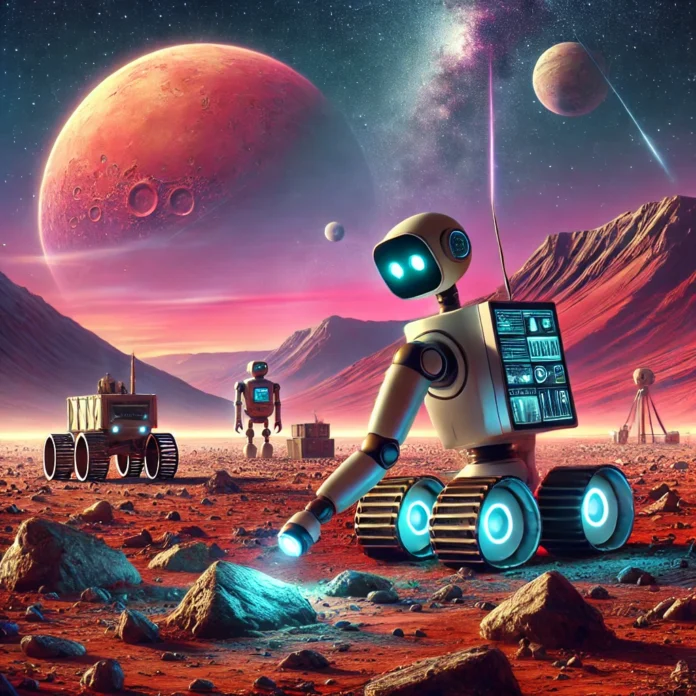In recent years, the integration of artificial intelligence (AI) and robotics has revolutionized space exploration, enabling missions that were once thought impossible. As we venture deeper into space, these technologies are becoming indispensable, allowing us to explore distant planets and moons with greater efficiency and autonomy. This article delves into the latest advancements in AI and robotics, highlighting their pivotal roles in transforming space exploration.
Innovations in Space Robotics and AI
The synergy between AI and robotics is driving significant innovations in space exploration. Robots equipped with AI capabilities are now performing tasks autonomously, from navigating treacherous terrains to conducting scientific experiments. This level of autonomy is crucial for missions on celestial bodies like Mars and Europa, where communication delays make real-time human intervention challenging.
For instance, NASA’s Europa Lander mission relies heavily on AI to make critical decisions without waiting for instructions from Earth. The AI system onboard can prioritize tasks based on scientific value and respond instantly to environmental changes, maximizing the mission’s scientific output. Similarly, the European Space Agency’s ExoMars rover is equipped with AI to autonomously process vast amounts of data, enhancing its operational efficiency and safety.
AI’s Role in Enhancing Operational Efficiency
AI’s ability to process and analyze data in real-time is transforming the operational efficiency of space missions. Advanced AI algorithms enable robots to make informed decisions on the fly, optimizing their performance in unpredictable environments. This capability is especially vital for long-duration missions where robots must operate independently for extended periods.
One notable example is the development of AI-driven autonomous navigation systems for rovers. These systems allow rovers to explore uncharted territories, identify scientifically valuable sites, and conduct experiments without human intervention. This level of autonomy not only enhances the mission’s success but also reduces the risks associated with human involvement in hazardous environments.
Ethical Considerations in Space Exploration
As AI and robotics become more integrated into space exploration, ethical considerations are coming to the forefront. The potential for AI to make independent decisions raises questions about accountability and the ethical implications of autonomous actions. Moreover, the use of AI in space exploration must be carefully regulated to ensure that it aligns with international laws and ethical standards.
During a recent event at King’s College London, experts emphasized the importance of a multidisciplinary approach that includes technology, science, law, and ethics to ensure responsible exploration and utilization of space. As the space race intensifies, addressing these ethical issues is paramount to navigating the evolving landscape of space exploration.
Conclusion
The convergence of AI and robotics is revolutionizing space exploration, pushing the boundaries of what is possible. As these technologies continue to evolve, they will play an increasingly critical role in enabling humanity to explore the cosmos. From autonomous decision-making to real-time data analysis, AI-driven robots are paving the way for a future where the mysteries of the universe are within our reach.


